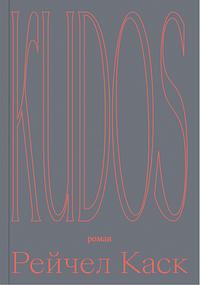You need to sign in or sign up before continuing.
Take a photo of a barcode or cover
I felt like I was intruding on someone's life reading the mundane conversations and anecdotes of the protagonist. Definite cool girl lit fic.
reflective
slow-paced
Plot or Character Driven:
Character
Strong character development:
N/A
Loveable characters:
No
Diverse cast of characters:
No
Flaws of characters a main focus:
Yes
“A little bit goes to the head,” Paola said. “Like wine. I feel like drinking wine”, she added, reaching for the menu. “I feel like losing my bearings.”
Felicia nodded slowly.
“It’s a good idea,” she said.
Felicia nodded slowly.
“It’s a good idea,” she said.
"I should put a lot of shit in the play," - heti
We are reminded of Woolf's commentary on Shakespeare in A Room of One's Own, that the sign of The Bard's greatness is that he has "consumed all impediments." What appears to be a clairvoyant description on a first reading, seems, perhaps, a simplification in service of Woolf's argument the second time around. How often do we find that it is the trace of identity, the block or impediment to writing, which becomes the fulcrum of strength in the text. In Cusk's own essays, (Coventry collection) she elevates the fragmentary effort characterized by writing in the drawing room as the inchoate form of a 'Female textuality'. Yet what occurs here is on a different level. What is the author's response to endless kudos, endless desserts i.e. those writing workshops and speaking circuits which are now the metastatic content of the entire novel (a pleasant 1/3 of the text in Outline then an exhausting 2/3 in Transit, and now constituting so much of the novel that one relishes the exception). Has anything good ever come from hatred of the text?
Almost certainly "yes," though I have significant reservations in this case. If we are to agree with James Elkins that Cusk "writes the 21st century in 19th century prose," then we might apprehend why she does not have the tools-on-hand to leverage the unmasked loathing of fawning public, mouthy interviewers, publishers' contracts, and literary (vicious) circles into a strength.
We begin with what is almost certainly the sarcastic inversion of the encounter with a stranger on a plane in the opening scene of Outline, which, rather than a divulsion marked by the self-serving elisions which are likely not even self-conscious, we read the direct account of a transgression which acknowledges, "men do not even have to pretend anymore." There is a certain inadequacy in the compulsion to write men acting hideously. The anonymous 'neighbor' of Outline was, in fact, the more demoniac figure because he can be laughed off. A curious feature of my edition of the text is that, immediately following the concluding image of the urinating Bear's cruel eyes, we read that Cusk has written a version of Medea. What is the woman's response when driven up into the Attic by a man's provocation (this is the real final word of the text). When I see another character approaching I want to walk away.
If I can permit myself to reference Jonathan Poole's critique of Cusk's so-called "Annihilated Perspective" as a catachresis, perhaps Cusk would do better to characterize her writing as, "More annihilated than repentant." (I have never discovered where Kierkegaard found this phrase.) It might be revealing to understand Cusk's project as like that second interviewer in this story, who, in the setting of a defective audiovisual system, is compelled to talk because there is a problem with the sound. She produces a compulsive sound-making which, oblique to semantic meaning, is a background against which one can perceive the artifact/distortion in a recording, and this flaw in the background becomes the foreground of our focus. There is a combination of phrases which can set things right, but it will always be inaccessible to her, first, because she is not an audiovisual engineer and therefore does not know the right words, second, because she has no access to the recording and therefore has no direct knowledge of the problem, and third, even if she knew the answer without the education and without direct knowledge of the situation, the audience would not even be listening.
reflective
fast-paced
Plot or Character Driven:
Character
Diverse cast of characters:
Yes
lighthearted
reflective
relaxing
medium-paced
Plot or Character Driven:
Character
Strong character development:
No
Loveable characters:
No
Diverse cast of characters:
Yes
Flaws of characters a main focus:
Complicated
A great ending to the trilogy.
Cusk truly has a knack for making me feel like the smartest version of myself.
Cusk truly has a knack for making me feel like the smartest version of myself.
Feel very mixed about this book. Good for what it is, but does it matter? Ending was a shock.
challenging
emotional
reflective
medium-paced
Plot or Character Driven:
Character
Strong character development:
No
Loveable characters:
Complicated
Diverse cast of characters:
Yes
Flaws of characters a main focus:
No
emotional
reflective
fast-paced
Plot or Character Driven:
Character
Strong character development:
No
Loveable characters:
Yes
Diverse cast of characters:
Yes
Flaws of characters a main focus:
Yes



